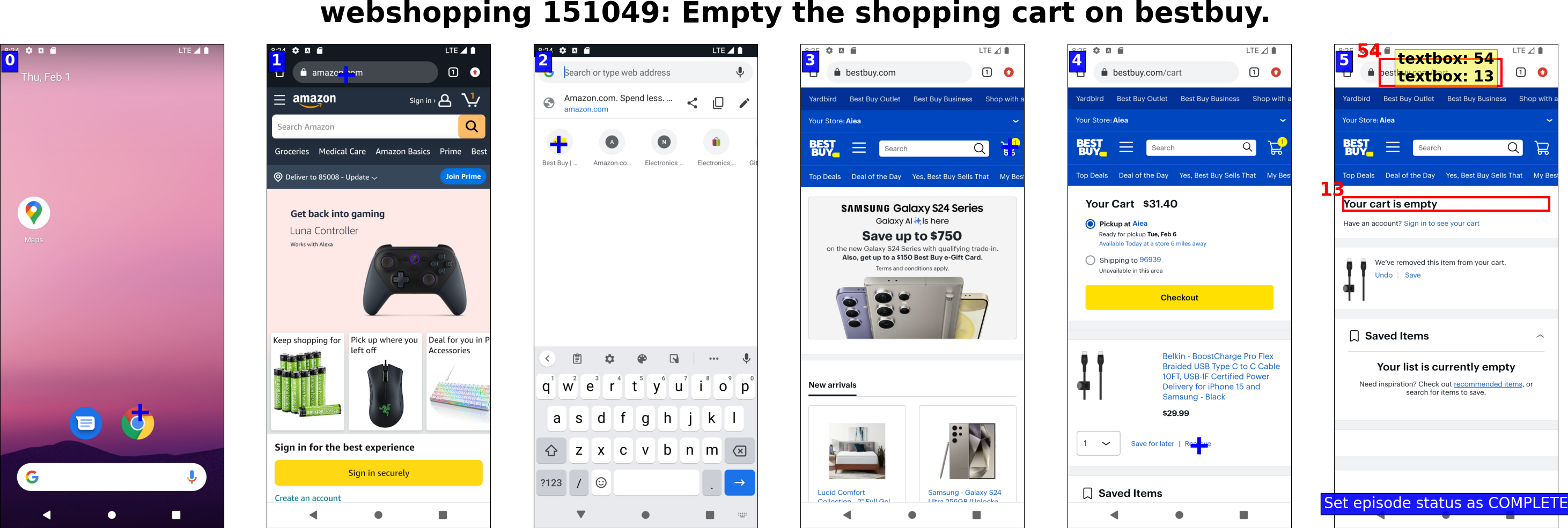LlamaTouch: A Faithful and Scalable Testbed for Mobile UI Automation Task Evaluation
The emergent large language/multimodal models facilitate the evolution of mobile agents, especially in the task of mobile UI automation. However, existing evaluation approaches, which rely on human validation or established datasets to compare agent-predicted actions with predefined ones, are unscalable and unfaithful. To overcome these limitations, this paper presents LlamaTouch, a testbed for on-device agent execution and faithful, scalable agent evaluation. By observing that the task execution process only transfers UI states, LlamaTouch employs a novel evaluation approach that only assesses whether an agent traverses all manually annotated, essential application/system states. LlamaTouch comprises three key techniques: (1) On-device task execution that enables mobile agents to interact with real mobile environments for task completion. (2) Fine-grained UI component annotation that merges pixel-level screenshots and textual screen hierarchies to explicitly identify and precisely annotate essential UI components with a rich set of designed annotation primitives. (3) A multi-level state matching algorithm that utilizes exact and fuzzy matching to accurately detect critical information in each screen with unpredictable UI layout/content dynamics. LlamaTouch currently incorporates four mobile agents and 495 UI automation tasks, encompassing both tasks in the widely-used datasets and our self-constructed ones for more diverse mobile applications. Evaluation results demonstrate the LlamaTouch's high faithfulness of evaluation in real environments and its better scalability than human validation. LlamaTouch also enables easy task annotation and integration of new mobile agents. Code and dataset are publicly available at https://github.com/LlamaTouch/LlamaTouch.
PDF Abstract
 PixelHelp
PixelHelp
 AitW
AitW